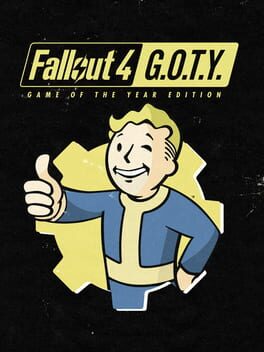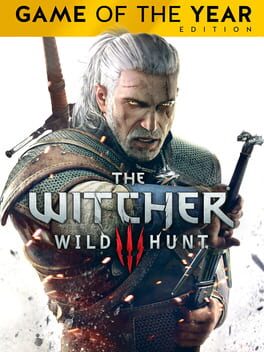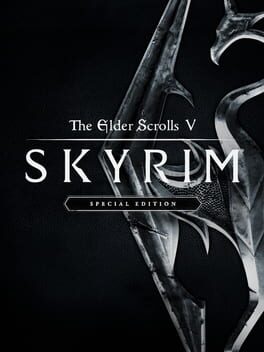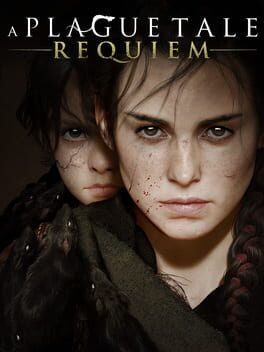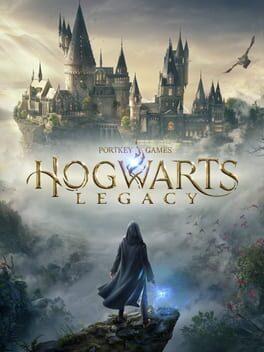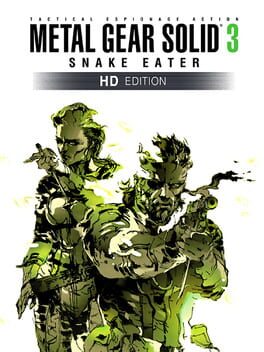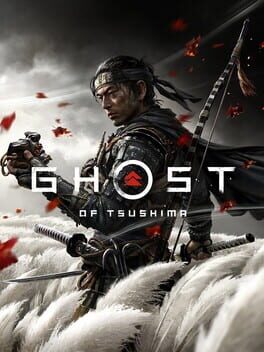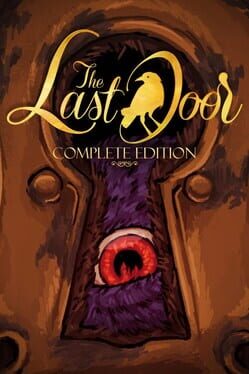KiraBobbySan
Bio
I am a cinephile first and foremost, which explains why my interest in video games are always geared towards story driven single player games. I gamed in my youth but then stopped for about a decade in my 20's, time spent mostly developing my movie habit and just figuring out life. I picked gaming up again in 2016 and been playing consistently ever since, although I'm still trying to catch up on all the classics I missed.
I am a cinephile first and foremost, which explains why my interest in video games are always geared towards story driven single player games. I gamed in my youth but then stopped for about a decade in my 20's, time spent mostly developing my movie habit and just figuring out life. I picked gaming up again in 2016 and been playing consistently ever since, although I'm still trying to catch up on all the classics I missed.
Badges

3 Years of Service
Being part of the Backloggd community for 3 years

Popular
Gained 15+ followers

N00b
Played 100+ games

Noticed
Gained 3+ followers
Favorite Games
249
Total Games Played
003
Played in 2024
039
Games Backloggd
Recently Played See More
Recently Reviewed See More
The open world format in gaming is no longer as revolutionary as it once was, and it is slowly becoming a tiresome formula. It is not even so much to do with the formula itself, but in how the developers are presenting it to the players, what they are doing with the said formula. The open world concept is traditionally a great idea since it does not railroad players in any one direction and gives them ample room and opportunity for exploration and discovery. It can be quite a magical experience. The issue that we see nowadays boils down to an argument of quality over quantity. The larger the map or the more repetitive activities (acting as filler in empty spaces) does not equal good content. I feel like the most prime examples of this are the Assassin Creed games. Most of the time, the gameplay in those games is magnificent, but the maps are large purely for the sake of being so, and the activities that act as filler become repetitive and boring. It also doesn’t help if you are not really that invested in the story of the game either, like I am with the AC games. Some of the best open world games have learned to provide a sense of variety, and condensed quality content. It needs to be more about the content than the map itself. Witcher 3 is one that comes to mind in that the story and lore of the game is what fuels the player’s direction. While it is technically open world and any or all could be explored (although certain areas are level restricted, not by a lack of permission but by a warning of danger), the quests which are some of the best ever designed in a game lead the player around the map in a meaningful and purpose driven way that is not simply go to point A to begin mission.
With that said, I think Ghost of Tsushima is the best and worst of both worlds. On one hand, the quests or “tales” as this game calls them, are overall uniquely designed and meaningful, but on the other hand, the map is large and filled with so many repetitive collectible type locations that act more like distractions from what is important. During my first few hours playing the game, I was in love and ready to declare it the GOTY right then and there. However, as the game went on, the dreading sense of repetitiveness took over and the game itself lingered on for too long. Normally I wouldn’t claim a 50-60 hour game as overlong if the content justifies it, but if it seems stretched out with the purpose of prolonging the journey, then it can damage the overall experience. I think Ghost of Tsushima just barely crosses that threshold of being slightly overlong. Granted, I know in a story related manner, it is not going to be something quick and easy to overcome an entire mongol army when you are outnumbered and need to utilize guerrilla warfare tactics. At the same time, some of the side quests were repetitive with a plot that appeared in some form or manner involving a peasant enlisting your help in finding a relative and either rescuing them or avenging their killers. Those quests could be drastically diminished without harming the overall content.
The story really shined in the character related tales, even more so than the main quest line. This is where I begin to understand the criticism of the main protagonist Jin Sakai and his overall lack of charisma or defining characteristics. Jin is sort of plain and a standard trope of overcoming adversity against all odds, even sacrificing one’s own integrity. He just seems one note, and doesn’t really undergo any sort of development other than the transition in his fighting style. Speaking of which, while I know the topic of fighting style is important to the code of a samurai and the idea of honor they hold so dear, the game does railroad you into that predicament. This is less of a criticism and more of a “what could have been” moment. While the game does have two endings, the decision of which is made at the very end with no real consequence one way or the other, what if the later half of the game could have been divided into two arcs, one which follows the way of the samurai and one of the way of the ghost. That freedom of choice and consequences based on that choice would have made the game far more interesting.
I diverged off topic with my explanation of Jin, but it is highly possible that Jin feels like the weakest link in terms of characters because the rest of his supporting cast is so magnificent. The character tales especially were an interesting type of quest line, allowing the players to get to deeply know each person and the development behind their character. Lady Masako and Yuna were among my favorites, but I also like Sensei Ishikawa and the story arc involving his one time pupil Tomoe. Even though she was briefly in the game, Yuriko also left an incredible impression and honestly some of the most emotional segments in the game, which I do believe was lacking overall. Norio, the warrior monk, was also a great addition and had the persona of being an extremely likeable guy. Aside from them, the mythical tales were also some of the game’s best content. Each one derives from a piece of Japanese folklore, beginning with a hand drawn style piece of animation as each tale which is sung by the musician/ quest giver.
The main story feels fairly standard and predictable, and thus the game relies on its other functions to come out ahead, including incredibly fluid gameplay. The combat and platforming were major highlights in the game, and their level of entertainment did not die off quickly. Other notables are the game’s luscious colors and graphical designs. Every piece of environment is picturesque, and when combined with the combat, we get the stunning duels that are the game’s cinematic high points. Regarding cinema, the Kurosawa mode was a bit of a disappointment. It seemed fun at first, but I felt cheated out of the games vibrant colors and graphics. I admire its inclusion the most and its intent. If anything, it will achieve name recognition for the cinema giant amongst casual movie watchers. It is also fun to utilize during duels and cutscenes to really obtain that classic samurai flick visual. The mode just does not work the greatest during normal gameplay, as it also makes it more difficult to see. especially when trying to go stealthy during any night sequences.
Ghost of Tsushima hits many of the right notes for me, including its setting of feudal era Japan, which is my bread and butter, at least when it comes to watching classic Japanese cinema. I love the look of the game, how it encapsulates the player in this specific moment in time in Japan, Everything about it felt very authentic and meticulously applied. It provides that escapism that we all seek from any form of entertainment, and transports us to fill the shoes of a samurai and it captures that feeling. For all of its shortcomings, regarding its length, its repetitiveness, and uninspired main story/character, they felt like nothing compared to everything else the game had to offer. While it is not “the” GOTY for me, there is no denying that it is one of the best games of the year, and it deserves its praise.
https://themadnessofdionysus.wordpress.com/2020/08/14/ghost-of-tsushima-2020/
With that said, I think Ghost of Tsushima is the best and worst of both worlds. On one hand, the quests or “tales” as this game calls them, are overall uniquely designed and meaningful, but on the other hand, the map is large and filled with so many repetitive collectible type locations that act more like distractions from what is important. During my first few hours playing the game, I was in love and ready to declare it the GOTY right then and there. However, as the game went on, the dreading sense of repetitiveness took over and the game itself lingered on for too long. Normally I wouldn’t claim a 50-60 hour game as overlong if the content justifies it, but if it seems stretched out with the purpose of prolonging the journey, then it can damage the overall experience. I think Ghost of Tsushima just barely crosses that threshold of being slightly overlong. Granted, I know in a story related manner, it is not going to be something quick and easy to overcome an entire mongol army when you are outnumbered and need to utilize guerrilla warfare tactics. At the same time, some of the side quests were repetitive with a plot that appeared in some form or manner involving a peasant enlisting your help in finding a relative and either rescuing them or avenging their killers. Those quests could be drastically diminished without harming the overall content.
The story really shined in the character related tales, even more so than the main quest line. This is where I begin to understand the criticism of the main protagonist Jin Sakai and his overall lack of charisma or defining characteristics. Jin is sort of plain and a standard trope of overcoming adversity against all odds, even sacrificing one’s own integrity. He just seems one note, and doesn’t really undergo any sort of development other than the transition in his fighting style. Speaking of which, while I know the topic of fighting style is important to the code of a samurai and the idea of honor they hold so dear, the game does railroad you into that predicament. This is less of a criticism and more of a “what could have been” moment. While the game does have two endings, the decision of which is made at the very end with no real consequence one way or the other, what if the later half of the game could have been divided into two arcs, one which follows the way of the samurai and one of the way of the ghost. That freedom of choice and consequences based on that choice would have made the game far more interesting.
I diverged off topic with my explanation of Jin, but it is highly possible that Jin feels like the weakest link in terms of characters because the rest of his supporting cast is so magnificent. The character tales especially were an interesting type of quest line, allowing the players to get to deeply know each person and the development behind their character. Lady Masako and Yuna were among my favorites, but I also like Sensei Ishikawa and the story arc involving his one time pupil Tomoe. Even though she was briefly in the game, Yuriko also left an incredible impression and honestly some of the most emotional segments in the game, which I do believe was lacking overall. Norio, the warrior monk, was also a great addition and had the persona of being an extremely likeable guy. Aside from them, the mythical tales were also some of the game’s best content. Each one derives from a piece of Japanese folklore, beginning with a hand drawn style piece of animation as each tale which is sung by the musician/ quest giver.
The main story feels fairly standard and predictable, and thus the game relies on its other functions to come out ahead, including incredibly fluid gameplay. The combat and platforming were major highlights in the game, and their level of entertainment did not die off quickly. Other notables are the game’s luscious colors and graphical designs. Every piece of environment is picturesque, and when combined with the combat, we get the stunning duels that are the game’s cinematic high points. Regarding cinema, the Kurosawa mode was a bit of a disappointment. It seemed fun at first, but I felt cheated out of the games vibrant colors and graphics. I admire its inclusion the most and its intent. If anything, it will achieve name recognition for the cinema giant amongst casual movie watchers. It is also fun to utilize during duels and cutscenes to really obtain that classic samurai flick visual. The mode just does not work the greatest during normal gameplay, as it also makes it more difficult to see. especially when trying to go stealthy during any night sequences.
Ghost of Tsushima hits many of the right notes for me, including its setting of feudal era Japan, which is my bread and butter, at least when it comes to watching classic Japanese cinema. I love the look of the game, how it encapsulates the player in this specific moment in time in Japan, Everything about it felt very authentic and meticulously applied. It provides that escapism that we all seek from any form of entertainment, and transports us to fill the shoes of a samurai and it captures that feeling. For all of its shortcomings, regarding its length, its repetitiveness, and uninspired main story/character, they felt like nothing compared to everything else the game had to offer. While it is not “the” GOTY for me, there is no denying that it is one of the best games of the year, and it deserves its praise.
https://themadnessofdionysus.wordpress.com/2020/08/14/ghost-of-tsushima-2020/
Similar to my Death Stranding review, a significant portion of this entry will be devoted to arguing against much of the backlash this game has unjustly received. In those sections, there will be heavy spoilers but a fair warning in advance will be given.
Several years since the release of the first game, and about the same amount of time passed within the game, Part II feels as though it picks up right where the first one ended. While there are some fragmented pieces that the story fills in little at a time to cover that gap, the entire basis of this second game is to address the consequences of how the first one came to a close. That particular climatic event put the wheels in motion of a fire and brimstone carriage, carrying vengeance along its path, and destruction in its wake. Revenge tales can often feel like standard fare, given how often such tropes are utilized. Yet, when done correctly, or at least in a way to where revenge is not necessarily the focal point or theme of the story, but rather a byproduct, these types of plots can be incredibly engaging. The idea of revenge is a staple in almost all of Shakespeare’s tragedies, namely Hamlet, and has since been a popular character arc to respond to. One must look deeper, past the literal act of revenge which is superficial in itself, and question all other motivations and consequences that lead up to and endure after the fact.
The Last of Us Part II continues the trend of its predecessor in pushing the moral boundaries of its player base. The game never allows the player to remain comfortable with a character for too long, and paints them all in a grayish light. In this world, good and evil are commodities of the past, and while every human group yearns to regain said humanity, survival always comes first. Characters are forced to do unspeakable acts to survive as is par the course in any apocalyptic setting. However, The Last of Us games in particular, that abandonment of morals is analyzed through the emotional torment of its characters. They sometimes struggle with the consequences of their actions, while others not so much or at a later time through the form of PTSD. The sequel, like the original, are both incredibly genuine in this aspect, and their characters are some of the most realistic ever written for a video game. These are the aspects where the game’s story excels.
Where it falters, in my opinion, is not being able to differentiate itself from its precursor. It is too similar to the first game, even with the introduction of Abby and Lev, we see another similar character duo arc to that of Joel and Ellie’s. To compare, Red Dead Redemption 2, while being a prequel rather than sequel, was able to become its own beast altogether, with minimal remembrance to the previous game until extremely later on. This complaint is minor but it does prevent me from truly recognizing it as a work separate from the first. The two are just destined to go hand in hand, and that is not always a bad thing.
As far as similarities go, the mechanics in this game are pretty much identical to the original with only a few tweaks. Perhaps, it is one of those cases of if it is not broken then don’t fix it, but what was once revolutionary in 2013, is not the case in 2020. Which again as I reiterate, is not necessarily a bad thing. The gameplay is beautiful and it lives up to its reveal footage with cutscenes seamlessly transitioning into gameplay undetected. The graphics are a marvel to behold, and the game moves so fluidly. As many others have stated before me, the attention to detail here is really unheralded among its contemporaries, and the music is somberly fitting. In the case of all of the above aforementioned aspects, the game is truly a technical masterpiece. Aside from the lack of originality in its inability to separate itself from the first entry, it being slightly bloated/overlong, and a few plot devices that could have used some work (I’ll explain more soon), the game as a whole would have been a masterpiece.
Now onto Spoilers…. so be warned, SPOILERS ahead…
While completely dismissing any negativity revolving around Ellie’s sexual orientation or Lev’s gender identity (as bigotry is not a legitimate form of criticism), the majority of upset and outright enraged fans denouncing the game is due to the early death of the first game’s main playable character Joel, and the inclusion of a new playable character Abby who is responsible for the aforementioned death. However, the reasoning behind these two complaints feels contradictory and why I feel the need to address such.
My first issue comes from the hero worshiping of Joel. Now, I admit, I like Joel too, as much as the next person, and that is mostly due to how great the character writing and voice acting skills in these games are. The sheer fact that Joel who was a dick to Ellie the majority of the first game, and became a complete villain by the end, still garners admiration from fans is a testament to the complexity and realism displayed within these characters and the world they inhabit. I admit I’m painting Joel with a more clear cut depiction by singling out his flaws, but it is true he is extremely likeable and seems sincere in how he eventually grows to care for Ellie as his surrogate daughter. Some of my favorite moments in this sequel were the flashbacks with Ellie and him, particularly in the museum which was one of the more nostalgic and emotional scenes. Now, did I want to see Joel die in this game? No, but I understand completely why he is murdered, and the justification behind doing so. The truth is Joel deserved Abby’s wrath by tenfold.
Here is where I have some issues behind Ellie’s motivation for revenge. During flashback sequences, it is revealed that Ellie discovers the truth of what went down at St. Mary’s Hospital at the end of the first game. Upon the revelation, her and Joel’s relationship becomes broken to the point of no return. She agrees to go back to Jackson, but exclaims how she can never forgive him for what he had done. Later on, their relationship appears to mend, albeit slightly, and she explains how she would like to “try” to forgive him. So there is some form of redemption occurring for Joel here, but it still is explicitly shown that Ellie would have rather died in that hospital for the possibility of a vaccine, than have Joel save her by massacring hundreds of Firefly members. Therefore, when the reasons behind Joel’s death are clear, you would think Ellie would be more understanding and withdraw from her revenge quest. She instead amplifies it. Even after she finds peace at the farm house with Dina and JJ, she is still consumed by her thirst for revenge. Now part of this is from clear symptoms of PTSD, which is realistically depicted within the game. However, this is the plot device that I dislike the most. Ellie should no longer have any motivation to go after Abby, since she was spared not once, but twice from Abby’s wrath, and has since learned the truth behind Abby’s own motivation for revenge. While I loved the Santa Barbara sequence, I feel a different plot direction was needed to elicit the reunion between Ellie and Abby other than Ellie going off on another revenge hunt.
With all of the above mentioned details between Ellie and Joel, I find some interesting parallels between the two. While Joel abandoned his humanity by the end of the first game, and in essence became a villain, I feel like Ellie makes a similar transformation in this game during her revenge quest. I understand that for both characters, these transformations are more designed to show their flaws and even to a certain extent provide some type of learning and growth, but it also does change, at least some players, opinions of the morality behind these characters. By the end of this game, Ellie will have realized she lost everything she wanted in a peaceful life with Dina and JJ at the farm, just to further pursue a lost cause of revenge that was never going to heal her pain. Same goes for Joel, in that he lost his good relationship with Ellie. One could also look at Abby as well, and see all of the loss she accrued as well, by enacting an otherwise justified revenge.
Speaking of Abby, I’m surprised by the amount of hate this character received with what seems to be her only flaw is not being Ellie, well that and she killed the beloved Joel. I thought it was an excellent way to structure the story, in separating and then coinciding the two perspectives of Ellie and Abby. First, we get to see Ellie enact revenge or try to anyway, against some unknown entity that caused Joel’s death. Then we get to see Abby’s perspective and why her killing of Joel was justified, thus turning the plot of the game on its head. The inclusion of Lev and his sister is another interesting aspect of the story, with the relationship between Abby and Lev forming a replacement duo of what had been Joel and Ellie of the first game. Lev’s presence serves more to bring Abby’s humanity back from its recesses, which is similar to the hardened Joel that we had seen at the beginning of the first game before his fondness grew of Ellie.
I’m not sure what kind of game the disgruntled fans were expecting, but with the way the first one ended, there was really no other way it could go without that event being addressed in some form or another. It’s not the greatest video game story ever told (a difficult task to do in this crowded zombie apocalypse genre), and it probably is more than likely an unnecessary sequel, but it is a pretty great game nonetheless and does not deserve some of the fan bashing that it has received.
https://themadnessofdionysus.wordpress.com/2020/06/30/the-last-of-us-part-ii/
Several years since the release of the first game, and about the same amount of time passed within the game, Part II feels as though it picks up right where the first one ended. While there are some fragmented pieces that the story fills in little at a time to cover that gap, the entire basis of this second game is to address the consequences of how the first one came to a close. That particular climatic event put the wheels in motion of a fire and brimstone carriage, carrying vengeance along its path, and destruction in its wake. Revenge tales can often feel like standard fare, given how often such tropes are utilized. Yet, when done correctly, or at least in a way to where revenge is not necessarily the focal point or theme of the story, but rather a byproduct, these types of plots can be incredibly engaging. The idea of revenge is a staple in almost all of Shakespeare’s tragedies, namely Hamlet, and has since been a popular character arc to respond to. One must look deeper, past the literal act of revenge which is superficial in itself, and question all other motivations and consequences that lead up to and endure after the fact.
The Last of Us Part II continues the trend of its predecessor in pushing the moral boundaries of its player base. The game never allows the player to remain comfortable with a character for too long, and paints them all in a grayish light. In this world, good and evil are commodities of the past, and while every human group yearns to regain said humanity, survival always comes first. Characters are forced to do unspeakable acts to survive as is par the course in any apocalyptic setting. However, The Last of Us games in particular, that abandonment of morals is analyzed through the emotional torment of its characters. They sometimes struggle with the consequences of their actions, while others not so much or at a later time through the form of PTSD. The sequel, like the original, are both incredibly genuine in this aspect, and their characters are some of the most realistic ever written for a video game. These are the aspects where the game’s story excels.
Where it falters, in my opinion, is not being able to differentiate itself from its precursor. It is too similar to the first game, even with the introduction of Abby and Lev, we see another similar character duo arc to that of Joel and Ellie’s. To compare, Red Dead Redemption 2, while being a prequel rather than sequel, was able to become its own beast altogether, with minimal remembrance to the previous game until extremely later on. This complaint is minor but it does prevent me from truly recognizing it as a work separate from the first. The two are just destined to go hand in hand, and that is not always a bad thing.
As far as similarities go, the mechanics in this game are pretty much identical to the original with only a few tweaks. Perhaps, it is one of those cases of if it is not broken then don’t fix it, but what was once revolutionary in 2013, is not the case in 2020. Which again as I reiterate, is not necessarily a bad thing. The gameplay is beautiful and it lives up to its reveal footage with cutscenes seamlessly transitioning into gameplay undetected. The graphics are a marvel to behold, and the game moves so fluidly. As many others have stated before me, the attention to detail here is really unheralded among its contemporaries, and the music is somberly fitting. In the case of all of the above aforementioned aspects, the game is truly a technical masterpiece. Aside from the lack of originality in its inability to separate itself from the first entry, it being slightly bloated/overlong, and a few plot devices that could have used some work (I’ll explain more soon), the game as a whole would have been a masterpiece.
Now onto Spoilers…. so be warned, SPOILERS ahead…
While completely dismissing any negativity revolving around Ellie’s sexual orientation or Lev’s gender identity (as bigotry is not a legitimate form of criticism), the majority of upset and outright enraged fans denouncing the game is due to the early death of the first game’s main playable character Joel, and the inclusion of a new playable character Abby who is responsible for the aforementioned death. However, the reasoning behind these two complaints feels contradictory and why I feel the need to address such.
My first issue comes from the hero worshiping of Joel. Now, I admit, I like Joel too, as much as the next person, and that is mostly due to how great the character writing and voice acting skills in these games are. The sheer fact that Joel who was a dick to Ellie the majority of the first game, and became a complete villain by the end, still garners admiration from fans is a testament to the complexity and realism displayed within these characters and the world they inhabit. I admit I’m painting Joel with a more clear cut depiction by singling out his flaws, but it is true he is extremely likeable and seems sincere in how he eventually grows to care for Ellie as his surrogate daughter. Some of my favorite moments in this sequel were the flashbacks with Ellie and him, particularly in the museum which was one of the more nostalgic and emotional scenes. Now, did I want to see Joel die in this game? No, but I understand completely why he is murdered, and the justification behind doing so. The truth is Joel deserved Abby’s wrath by tenfold.
Here is where I have some issues behind Ellie’s motivation for revenge. During flashback sequences, it is revealed that Ellie discovers the truth of what went down at St. Mary’s Hospital at the end of the first game. Upon the revelation, her and Joel’s relationship becomes broken to the point of no return. She agrees to go back to Jackson, but exclaims how she can never forgive him for what he had done. Later on, their relationship appears to mend, albeit slightly, and she explains how she would like to “try” to forgive him. So there is some form of redemption occurring for Joel here, but it still is explicitly shown that Ellie would have rather died in that hospital for the possibility of a vaccine, than have Joel save her by massacring hundreds of Firefly members. Therefore, when the reasons behind Joel’s death are clear, you would think Ellie would be more understanding and withdraw from her revenge quest. She instead amplifies it. Even after she finds peace at the farm house with Dina and JJ, she is still consumed by her thirst for revenge. Now part of this is from clear symptoms of PTSD, which is realistically depicted within the game. However, this is the plot device that I dislike the most. Ellie should no longer have any motivation to go after Abby, since she was spared not once, but twice from Abby’s wrath, and has since learned the truth behind Abby’s own motivation for revenge. While I loved the Santa Barbara sequence, I feel a different plot direction was needed to elicit the reunion between Ellie and Abby other than Ellie going off on another revenge hunt.
With all of the above mentioned details between Ellie and Joel, I find some interesting parallels between the two. While Joel abandoned his humanity by the end of the first game, and in essence became a villain, I feel like Ellie makes a similar transformation in this game during her revenge quest. I understand that for both characters, these transformations are more designed to show their flaws and even to a certain extent provide some type of learning and growth, but it also does change, at least some players, opinions of the morality behind these characters. By the end of this game, Ellie will have realized she lost everything she wanted in a peaceful life with Dina and JJ at the farm, just to further pursue a lost cause of revenge that was never going to heal her pain. Same goes for Joel, in that he lost his good relationship with Ellie. One could also look at Abby as well, and see all of the loss she accrued as well, by enacting an otherwise justified revenge.
Speaking of Abby, I’m surprised by the amount of hate this character received with what seems to be her only flaw is not being Ellie, well that and she killed the beloved Joel. I thought it was an excellent way to structure the story, in separating and then coinciding the two perspectives of Ellie and Abby. First, we get to see Ellie enact revenge or try to anyway, against some unknown entity that caused Joel’s death. Then we get to see Abby’s perspective and why her killing of Joel was justified, thus turning the plot of the game on its head. The inclusion of Lev and his sister is another interesting aspect of the story, with the relationship between Abby and Lev forming a replacement duo of what had been Joel and Ellie of the first game. Lev’s presence serves more to bring Abby’s humanity back from its recesses, which is similar to the hardened Joel that we had seen at the beginning of the first game before his fondness grew of Ellie.
I’m not sure what kind of game the disgruntled fans were expecting, but with the way the first one ended, there was really no other way it could go without that event being addressed in some form or another. It’s not the greatest video game story ever told (a difficult task to do in this crowded zombie apocalypse genre), and it probably is more than likely an unnecessary sequel, but it is a pretty great game nonetheless and does not deserve some of the fan bashing that it has received.
https://themadnessofdionysus.wordpress.com/2020/06/30/the-last-of-us-part-ii/
This review is based on the console port that was released in May of 2019, but the 3-4 year span listed in the title is to represent the game’s original release date as it came out in episodic form. It was crowdfunded on Kickstarter, similar to The Game Kitchen’s recent release ‘Blasphemous’. In fact, that is how this game came to my attention. I was incredibly eager to play ‘Blasphemous’ even prior to its release, and when the time finally came, the game did not disappoint. It was a stunning metroid-vania with tremendous action, detailed set pieces, insane mythos and art, with lore of a perverted sacrilegious horror. I fell in love with it, and it was during that time that I discovered the developers The Game Kitchen had a previous game under their belt, and it was to come to consoles soon. Hence, my journey to ‘The Last Door’, a point and click horror mystery with heavy influences on literary terrors such as Edgar Allan Poe and H.P. Lovecraft.
I know, on the surface, the game probably does not look like much. It is a pixelated story driven game with very little in way of gameplay. Its point and click mechanics basically serve two functions, to point and click where you want your playable character to walk to, and to point and click on what object of interest is available to examine/inspect. While none of these features bothered me, I must admit that I at least yearned for something with a bit more detail in the graphics/ art design other than just pixels. These thoughts mainly arose in comparison to how simple yet marvelous the design in ‘Blasphemous’ was, and it could have been easily replicated here. In fact, while we are on this subject and given that my reaction towards this game was mostly positive, I also thought how wonderful it could be if this game got a face lift in a remake or remaster. These are just wishful hypothetical ramblings. On to the more juicier stuff.
Since this game is essentially designed in a television series format, and I’m talking more than just how it is divided by episodes (there is even a well crafted opening title sequence before each episode), I kept comparing it to the film/television medium. Story-wise, the game fits right in that environment and could be easily adapted into a series-miniseries for television (Probably too much for one film). Given that comparison, and how even some of the best series out there can have lackluster seasons (Game of Thrones season finale?), I got to say that the first season here is far superior to the second. I was actually ready to include this game among my top favorites while playing the first season, but the second one became far too tedious and the story sunk in quality by getting too overtly complicated in a Lovecraftian dimensional timeline with cults. The first season had the perfect balance, it had great intrigue and even some shocking and surprise filled moments that truly caught me off guard. This was particularly the case with the shocking yet cliff hanger style way most of the episodes ended. It just begged for the player to keep continuing and unraveling what comes next in the mystery.
On a few other notes, the music in this game was fantastic, and really enhanced the moody atmosphere the game created. Also, I had briefly mentioned the gameplay by only describing the point and click mechanics in a broad manner. However, on that topic, I want to add how well thought out and intricate some of the puzzles featured in the game were. None were too overtly difficult as well (maybe a couple were pretty complex). It is not too long of a playthrough either. It took me roughly 12-15 hours or so, but that was including a partial 2nd playthrough in order for me to write my first ever trophy guide for any game. There was not a complete guide that I could find on the internet that compiled both seasons, so I decided to fill in that gap. Overall though, this was a stellar game that I highly recommend. Obviously, as I said before, it’s not the type of game you get for gameplay, and more similar in the vein of a story based walking simulator (although this time you point/click to walk). So, if you are in the mood for a little indie game that delivers the suspense and intrigue, then this is for you.
https://themadnessofdionysus.wordpress.com/2020/04/12/the-last-door-2013-16/
I know, on the surface, the game probably does not look like much. It is a pixelated story driven game with very little in way of gameplay. Its point and click mechanics basically serve two functions, to point and click where you want your playable character to walk to, and to point and click on what object of interest is available to examine/inspect. While none of these features bothered me, I must admit that I at least yearned for something with a bit more detail in the graphics/ art design other than just pixels. These thoughts mainly arose in comparison to how simple yet marvelous the design in ‘Blasphemous’ was, and it could have been easily replicated here. In fact, while we are on this subject and given that my reaction towards this game was mostly positive, I also thought how wonderful it could be if this game got a face lift in a remake or remaster. These are just wishful hypothetical ramblings. On to the more juicier stuff.
Since this game is essentially designed in a television series format, and I’m talking more than just how it is divided by episodes (there is even a well crafted opening title sequence before each episode), I kept comparing it to the film/television medium. Story-wise, the game fits right in that environment and could be easily adapted into a series-miniseries for television (Probably too much for one film). Given that comparison, and how even some of the best series out there can have lackluster seasons (Game of Thrones season finale?), I got to say that the first season here is far superior to the second. I was actually ready to include this game among my top favorites while playing the first season, but the second one became far too tedious and the story sunk in quality by getting too overtly complicated in a Lovecraftian dimensional timeline with cults. The first season had the perfect balance, it had great intrigue and even some shocking and surprise filled moments that truly caught me off guard. This was particularly the case with the shocking yet cliff hanger style way most of the episodes ended. It just begged for the player to keep continuing and unraveling what comes next in the mystery.
On a few other notes, the music in this game was fantastic, and really enhanced the moody atmosphere the game created. Also, I had briefly mentioned the gameplay by only describing the point and click mechanics in a broad manner. However, on that topic, I want to add how well thought out and intricate some of the puzzles featured in the game were. None were too overtly difficult as well (maybe a couple were pretty complex). It is not too long of a playthrough either. It took me roughly 12-15 hours or so, but that was including a partial 2nd playthrough in order for me to write my first ever trophy guide for any game. There was not a complete guide that I could find on the internet that compiled both seasons, so I decided to fill in that gap. Overall though, this was a stellar game that I highly recommend. Obviously, as I said before, it’s not the type of game you get for gameplay, and more similar in the vein of a story based walking simulator (although this time you point/click to walk). So, if you are in the mood for a little indie game that delivers the suspense and intrigue, then this is for you.
https://themadnessofdionysus.wordpress.com/2020/04/12/the-last-door-2013-16/

